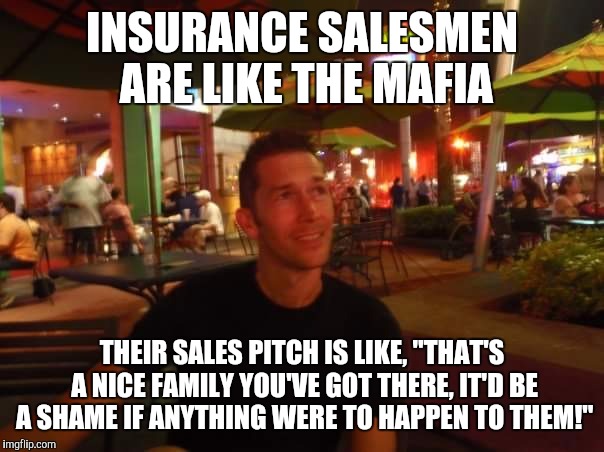

So, you’ve just graduated college. You’ve got a fancy degree in hand, even fancier students loan to match, and the fanciest new employee orientation packet you’ve ever seen.
There’s just one tiny problem. Out of nowhere, people are calling you an adult!
Suddenly, you’re expected to know what to do with all these bills, how much money to spend, and what the hell all these retirement acronyms mean. (And btw, just when did it become socially unacceptable to pre-game on a Thursday?)

I get it. I’ve been there, and somehow, I was able to hurdle those adulting milestones and emerge on the other side as a 28-year-old with $245,000 in the bank.
Want to know how?
- I pretended to be an adult
- I tried to get my S#!T together
- And I didn’t listen to the “normal” money advice.
You and I may have grown up in the era of participation trophies, but I’m not going to sugar coat anything for you.
There’s tons of places to receive average advice, which leads to average results.
But if you’re wanting to get really crazy with it – dominating adult responsibilities no problem, saving over half your income (or more!) and retiring before your friends get out of debt, then you’re in the right place.
I promise that if you follow the advice in this article, your money will be so on point, you just might start wondering where all this cash is coming from.

How to Adult: A Checklist of Things Adults Should Know
Lesson 1: Surprise! Most people are doing money all wrong.
Remember when you were a kid, and you thought grown-ups were something like a completely different species?
Sure, YOU might have found yourself confused, but those grown ups… oh no, they understood everything.
Here’s the dirty secret. Those grown-ups are the same people as ever, and they’re all figuring out this thing as they go.
Here’s the other fact that makes adulting so hard; there’s a ton of terrible money advice out there.
The truth? A lot of people stand to make more money if they can convince you that personal finance has to be complicated.
The average American saves less than 5 percent of their income, 76% admit to living paycheck to paycheck, and 2/3 couldn’t come up with $2,000 if their lives depended on it.
This is a financial disaster.
Remember what I said about average advice?
As you enter the real world, you’ll start to hear all sorts of coworkers, friends, family, aunts, and uncles come out of the woodwork to offer you money advice. The problem? Most of them have no idea what they’re doing either. Before you know it, you’ll be listening to terrible advice, like saving a ridiculously small percentage of your income, buying an oversized house ASAP, and gutting it out for 40 years until social security kicks in.
NOPE! Just flat out wrong. Let’s move on to some truth.
Lesson 2: What the heck is credit, and how will it save me hundreds of thousands of dollars?

The term “credit” is used a staggering number of ways in finance, which is real jerk move by whoever invented the English language.
But for our purposes, credit, refers to your credit score.
In college, your ability to throw a raging kegger might have been the driving factor behind your reputation, but in the real world, it’s all about your credit. Your credit score is how banks, credit card companies, and just about anyone else in the real world decides whether or not you’re good for the money.
Ultimately, your credit score decides the interest rates you pay. On something like a mortgage, even fractions of a difference in interest rates can mean paying thousands of extra dollars over the life of a loan.
We could go all into the details about how your score is calculated, but we’ll stick with what matters to you right now. 50% of your credit score is calculated based on:
- Paying your bills on time
- How long you’ve been paying those bills on time
What’s that mean to you?
If you haven’t already been building credit, you need to get a credit card! And manage it responsibly, which means paying off the entire statement balance every single month, no exceptions. (If you don’t pay it off in full, you’ll NEVER get ahead financially, and I do mean never. You’ve been warned.)
And then, you should monitor your credit, to make sure nothing crazy is going on with your score.
Credit Sesame is one of the best ways to monitor your credit, for free. They’re a 100% legit company that I’ve been using to monitor my credit for years. Plus, they offer customized (and free!) advice on how to improve your credit score.
Lesson 3: How to Move Into Your First Apartment
Your own place! Who cares if you don’t actually own it… it’s yours.
I remember thinking this life event was a pretty huge deal, and it is. But if you want to avoid losing your whole paycheck on your very first adult decision, there’s a few things to keep in mind.
1) You’re renting, not owning – there’s no sense in paying for hardwood floors and granite countertops every month when you’ve got nothing to show for it.
Keep your first place nice and basic; your friends don’t care whether your fridge is stainless steel anyway, as long as you keep it stocked.
(Trust me, a 6 pack of beer is waaay cheaper than the $200 a month you’ll pay for shiny appliances.)
2) Think twice about the downtown high-rise. I get it. It’s sleek and sexy and you can imagine all the wild nights you’ll have bar hopping near your apartment.
Here’s the part nobody tells you. Living downtown is a hassle. It’s noisy. Parking is a nightmare, or it costs a fortune.
Plus, with the amount of money you’re paying to live in the most premium real estate, you could instead live a little farther away, and then hire your own personal uber to take you wherever you want all night.
3) Find a place close to work. Welcome to adulthood – bumper to bumper commutes for hours and hours on end. And a fortune spent on gas. But it doesn’t have to be this way.
Find a place close to work, and you’ll slash the cost of your commute.
Don’t think that’s a big deal? Between the cost of gas, wear and tear, etc, the IRS estimates it costs 54.5 cents for every mile driven.
That means a place an extra 10 miles from work costs you $10.90 a day in vehicle expenses. That’s $55 a week or nearly $3,000 a year!!
4) Roommates are underrated. I rented my own place in Denver for my first 2 years out of school. Sure, it was sweet to be rocking a bachelor pad all to myself. BUT, there’s some serious advantages to a roommate.
Obviously, you’ll cut your living expenses in half, or more, which is awesome. But you’ll also have somebody to hang out with and always do stuff with, which can be really convenient now that your usual college crew won’t be around all the time.
Lesson 4: You don’t have to budget. But you do need to track your spending if you want to easily save tons of money.

Ugh… why does the good news always come with some bad news?
I realize it sounds terribly boring, but trust me. Just having a basic idea of how much money you’re making and how much money you’re spending is the most important step to building serious wealth.
You don’t have to get crazy with it either. I usually track my spending in a spreadsheet on my phone, and I can literally record my spending before the cashier is finished ringing me up.
If you want to get fancier, a free tool like Personal Capital or Mint will do everything for you automatically. Now we really don’t have an excuse!
I can’t stress how critical this is. I’d have never been able to save the amount of money I did if I wasn’t keeping an eye on where my money was going.
Before you know it, you won’t be able to help yourself from looking for ways to spend less and save more. Your fat bank account will thank you!
Lesson 5: The best time to start investing is yesterday. The second best time to start investing is today.
I get it. Saving money for retirement feels like making flashcards for the final exam on the first day of class. How are you supposed to get motivated when the goal is over 30 years away?
Well, consider this. I started seriously saving for retirement in my 20s, and a few years of big savings early means I’m already on pace to retire early. And no, I don’t mean age 50. Or even 40. How does retiring at age 37 sound??
Compound interest is a helluva drug, and when you start young, you’ll end with more money than you could ever imagine.
You don’t need to be a stock picking genius either, and you probably shouldn’t hire a money manager. The most important aspects of investing are:
- Don’t try to day trade.
- Choose a broadly diversified index fund with low costs.
- Save a lot of money.
Seriously, investing can be that easy. That’s basically my entire investing strategy summed up in three steps, and the results speak for themselves.
Wondering where student loans fit in, or just having trouble deciding where to start? I made an awesome cheat sheet: The Correct Order for Investing Your Money

Lesson 6: Don’t feel rushed to buy a house
Americans love home ownership, so don’t you dare renew that apartment lease without facing the wrath of your friends, family, and soon-to-be-realtor!
That wrath is mostly nonsense, of course.
Houses are freakin’ expensive (way more expensive than most people think) and most people completely misunderstand the all-powerful home equity.
Real estate also returns 0% after adjusting for inflation, so finding a cheap apartment and investing the difference is actually a pretty solid strategy towards building up a huge bank account. (Emphasis on investing!!!)
That’s what I did for my first 3.5 years out of school, and I saw my net worth skyrocket.
Speaking of which, you should also take your bank’s “recommendation” for how much house you can afford and throw it straight into the trash. Mint.com recently told me I could afford a $480,000 house, which is insane and would have me trapped in a paycheck to paycheck cycle.
Instead, when you are ready, think long and hard about how much house you really need, and then find yourself a modest place at a great price. My house cost a little more than 2 times my annual salary, which leaves the mortgage totally manageable, and allows me to save still huge chunks of cash every month.
Lesson 7: Cars aren’t cool.
That’s a lie. Cars are insanely cool, and I’d love to have an Aston Martin show up in my garage one day.
But until you can support yourself without having to drive a car to work every single day, there’s no point blowing all your money on one.
Instead, remember to love your old car.
Your old car is literally a money-making machine. Because while everyone else is blowing money every month on their new car payment, every month old faithful sticks around, she’s basically writing you a couple hundred dollar check.
When it comes time to buy the next car, remember this oh-too-simple rule: If you can’t afford to buy it in cash, you can’t afford to buy it at all.
Lesson 8: Yep, you’re going to pay a lot of taxes.
And yes, writing that check to the IRS sure does suck.
Not much to else say here. Uncle Sam makes sure people pay their taxes, and he throws people in jail who don’t.
While it’s a good idea to get a basic understanding of how the tax system works, if you’re still intimidated, don’t be afraid to hire a CPA or EA. It might sound like something only a millionaire business owner would need, but they’re surprisingly affordable, and if they happen to spot an opportunity for tax savings, they could even pay for themselves.
Need a #LifeGoal? If you save enough, you can eventually make over $100,000 a year and pay ZERO dollars in taxes.
Lesson 9: Don’t get ripped off with insurance.

As you find yourself becoming an adult, you’ll notice something else peculiar. Suddenly, everyone wants to sell you insurance.
If you’re financially savvy, and you like the idea of keeping your money, you’d be wise to make “no” your default answer to these insurance proposals.
Insurance companies work by collecting tons of information about different people in almost every situation imaginable. Then they hire a bunch of math geeks to analyze the data, and carefully set your insurance rates high enough that they’ll make money off you.
In other words, statistically, you will lose money if you play the insurance game long enough.
Insurance then, should be reserved for those few events that would be disastrous if you couldn’t afford. Here’s a breakdown of my history with insurance policies:
- Renters insurance: Never had it. Losing my TV in the event of theft would suck, but so would flushing money down the drain every month on insurance.
- Extended Warranties aka product insurance: Never. These are money sucking machines.
- Life insurance: Nope, because I’ve never had anyone relying on my wages for survival. (And whatever you do, please don’t buy a “whole life” insurance policy. Total scam.)
- Car insurance: Liability only, because I’ve got enough money to replace my car in cash. And if I didn’t, I’d find a beater cheap enough that I could.
- Travel insurance: If my trip got cancelled, that’d be a bummer. What’s not a bummer? Being able to afford a trip around the world with all the money I’ve saved by opting out of trip insurance over the years.
- Pet insurance. Nope, pet insurance is mostly a scam.
- Health Insurance: With some cancer therapies costing $30,000 a month, I definitely could not afford to self-insure against medical risks. So, health insurance it is!
- Home Insurance: Worth it. When I bought my house, it cost $180,000 and my net worth was $200,000. In other words, replacing my house would leave quite the dent on my finances. (If that wasn’t convincing enough, your bank won’t even give you a choice unless you buy the house straight cash, homie.)
Lesson 10: Tying adulting together, and how to turn your finances into a wealth building machine.
Phew! We’re rounding out this crash course in becoming an adult. Your head is probably spinning.
The most important take-away? Stick to a few simple adulting rules, and you’ll soon find yourself the most responsible real-life-grown up you know.

Keep it up and you’ll see something even more amazing on the horizon – a complete lack of money related stress. And just beyond that, total freedom.
From here, you can even put that sucker on cruise control, by automating as much of your financial life as possible:
- Automate your 401(k) – employer matches are literally free money, so make sure you contribute. PS – if you start maxing out your 401(k), you’re all but guaranteed to become a millionaire.
- Automate your stock picking – index funds outperform active stock picking AND require less work. Score one for couch potatoes!
- Automate your index fund contributions – companies like Vanguard will let you automatically transfer money from your paycheck towards your index funds. This is known as “paying yourself first” and it’s far and away the easiest way to stick to your financial goals.
- Pocket your raises – My favorite strategy for increasing my savings over time? Whenever I get a raise, I keep my lifestyle the same, and then increase how much I’m saving by the same amount as my raise.
- Automatic bill pay – Remove the last money related stress in your life by setting up autopay on your bills. You’ll avoid headaches AND late fees.
From there, your wealth building machine will silently work away, compounding like crazy, to make you rich.
Final Thoughts on How to Adult
Congrats! If you made it to the end of this article, you already know more about finance than the majority of the country.
Welcome to adulthood, population you. Enjoy the ride!
Related Articles:


Some great tips here MoneyWizard! After a couple of decades at it, I’m still learning how to be an adult. One day maybe I’ll be good at it.
I will tell you this though — nothing turns you into an adult more than having kids. Nothing.
Ha! I believe it!
I read every post you publish and this one is nothing short of brilliant. Your advice on purchasing a house is spot-on as real estate (aside from rental property) is heavily overrated and rarely questioned by anyone.
Thanks for writing such quality material; I know every time you post it’ll be well-articulated, useful and original content that’s easily understood. Keep up the great work and I look forward to the next one!
Andrew, always awesome to hear from longtime readers. It means a lot. Thanks for the comment!
Liked this one! Would love for a post on life insurance, especially why you believe whole life policies are a scam!
Thanks! It’s definitely on my list.
Agreed Zack! the top2 players in whole life insurance are really good and “Investing” in them can have huge benefits for passing down the wealth to the next generation, even if you don’t die prematurely
Enjoyed reading this one. One lesson I would add is: peer pressure is overrated, never compare yourself to anybody, live and let live.
Awesome post. One thing I saw that I disagree with is renter’s insurance. When I added renter’s insurance to my car insurance policy my rate actually went down. Why not have that added protection for free!
what happened to you, last blog update was last january 31st 2023, thats over a year ago after doing your monthly update without fail,
hope all is well, and if there are still any readers out there looking for a similar blog like this, then please consider my blog https://www.investingforbeginnerscommunity.com/post/how-to-make-20-to-40-yearly-returns